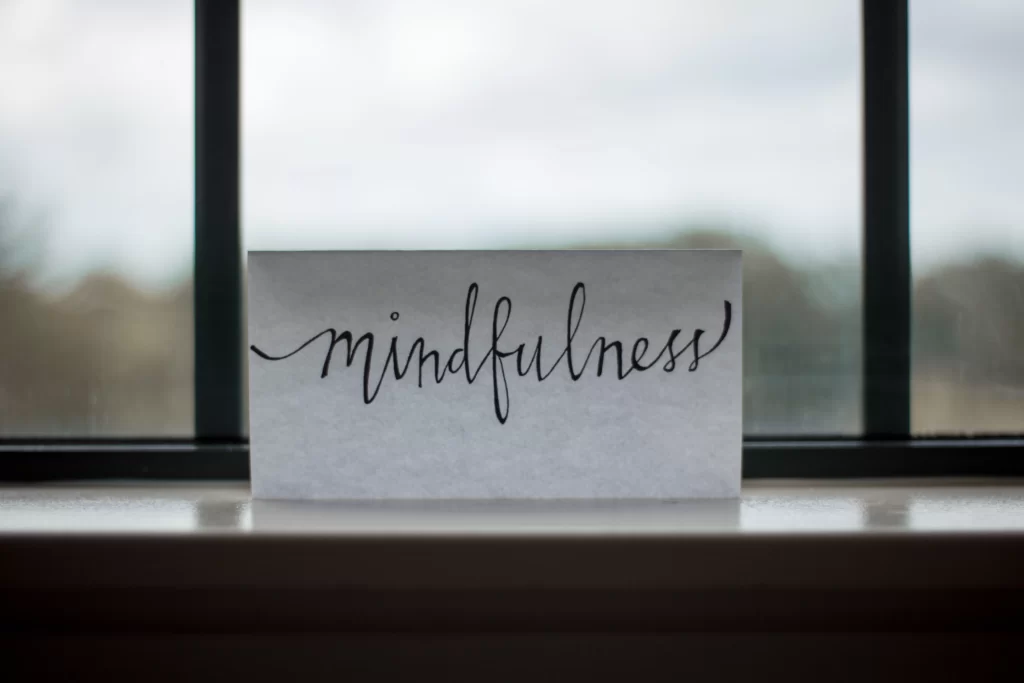Introduction
In today’s fast-paced world, stress has become an inevitable part of our lives. Whether it’s work-related pressures, personal challenges, or the general hustle and bustle of modern life, stress can take a toll on our physical and mental well-being. However, there’s good news – you can master stress through the power of cognitive techniques. In this article, we’ll explore what cognitive techniques are and how they can help you regain control over your life.
What are Cognitive Techniques?
Definition and Explanation
Cognitive techniques, often referred to as cognitive strategies or cognitive restructuring, are a set of psychological tools that focus on changing the way you think and perceive situations. These techniques are based on the premise that our thoughts influence our emotions and behaviors. By altering our thought patterns, we can effectively manage stress and improve our overall quality of life.
How Cognitive Techniques Help Manage Stress
Cognitive techniques are powerful stress management tools because they target the root causes of stress – our thoughts. When we face challenging situations, our minds often magnify problems, create negative scenarios, and generate anxiety. Cognitive techniques teach us to identify and challenge these automatic negative thoughts, replacing them with more rational and constructive thinking.

Identifying Stress Triggers
Recognizing Stressors in Your Life
Before you can apply cognitive techniques, it’s crucial to identify the sources of stress in your life. These stressors can vary widely from person to person and may include work-related pressures, financial concerns, relationship issues, or health challenges. Take some time to pinpoint the specific stress triggers in your life.
Common Stressors
While stressors can be unique to each individual, some common stressors include:
- Work-related deadlines and pressures
- Family and relationship conflicts
- Financial difficulties
- Health concerns
- Uncertainty about the future
Understanding your stressors is the first step in managing them effectively.
Cognitive Restructuring
Changing Negative Thought Patterns
One of the core principles of cognitive techniques is cognitive restructuring. This process involves identifying negative thought patterns, also known as cognitive distortions, and challenging them. Some common cognitive distortions include:
- All-or-nothing thinking
- Catastrophizing (assuming the worst will happen)
- Overgeneralization
- Personalization (taking responsibility for things beyond your control)
By recognizing these distortions and replacing them with more balanced and realistic thoughts, you can reduce the emotional impact of stressors.
Practical Steps to Implement Cognitive Restructuring
Cognitive restructuring is a skill that requires practice. To implement it effectively, follow these steps:
- Identify Negative Thoughts: Pay attention to your thoughts when you’re feeling stressed. What are you telling yourself?
- Challenge Negative Thoughts: Ask yourself if there’s evidence to support your negative thoughts. Are you making assumptions? Are you jumping to conclusions?
- Replace with Balanced Thoughts: Once you’ve challenged negative thoughts, replace them with more balanced and realistic alternatives.
- Practice Mindfulness: Mindfulness techniques, such as meditation and deep breathing, can help you stay grounded and aware of your thoughts.
Mindfulness and Stress Reduction

The Role of Mindfulness
Mindfulness is another powerful cognitive technique that promotes stress reduction. It involves being fully present in the moment, without judgment. Mindfulness helps you observe your thoughts and emotions without becoming overwhelmed by them.
Mindfulness Exercises for Stress Management
Here are some simple mindfulness exercises to incorporate into your daily routine:
- Breathing Meditation: Take a few minutes each day to focus on your breath. Inhale and exhale slowly, paying attention to each breath.
- Body Scan: Close your eyes and mentally scan your body from head to toe, noticing any areas of tension.
- Mindful Walking: Take a leisurely walk and focus your attention on each step and the sensations in your body.
- Gratitude Journal: Write down three things you’re grateful for each day. This can shift your focus from stressors to positive aspects of your life.
Positive Self-Talk
Harnessing the Power of Positive Thinking
Positive self-talk is an essential component of cognitive techniques. It involves consciously changing the way you speak to yourself. Instead of dwelling on negative thoughts, practice self-compassion and optimism.
Creating a Positive Self-Talk Routine
To develop a positive self-talk routine, follow these steps:
- Identify Negative Self-Talk: Notice when you’re being overly critical or pessimistic.
- Challenge and Reframe: Challenge these negative thoughts and reframe them in a more positive and constructive way.
- Use Affirmations: Develop a list of positive affirmations and repeat them daily.
Relaxation Techniques
Progressive Muscle Relaxation
Progressive muscle relaxation is a physical relaxation technique that involves tensing and then relaxing different muscle groups. This practice helps reduce physical tension and promotes relaxation.
Deep Breathing Exercises
Deep breathing exercises, such as diaphragmatic breathing, can calm the body’s stress response. Practice deep, slow breaths to center yourself during stressful moments.
Visualization Techniques
Visualization involves imagining a peaceful and stress-free scenario. It can be a mental vacation to a serene place or envisioning a successful outcome to a challenging situation.
Time Management and Stress

Effective Time Management Strategies
Poor time management often leads to stress. Implement time management strategies like creating a to-do list, setting priorities, and avoiding procrastination to regain control over your schedule.
Balancing Priorities to Reduce Stress
Learning to balance work, personal life, and self-care is essential for stress management. Remember that it’s okay to say no and prioritize your well-being.
Social Support and Stress
Building a Support Network
Having a strong social support system can significantly reduce stress. Reach out to friends and loved ones for emotional support and guidance during challenging times.
The Impact of Social Connections on Stress
Social connections provide a sense of belonging and emotional safety, which can buffer the effects of stress. Don’t hesitate to lean on your support network when needed.
Physical Activity and Stress Reduction

The Link Between Exercise and Stress
Exercise is a natural stress reducer. Physical activity releases endorphins, which are the body’s natural mood lifters. Incorporate regular exercise into your routine.
- Stress Hormone Regulation: Exercise helps regulate stress hormones like cortisol.
- Improved Mood: Physical activity promotes a sense of well-being and happiness.
- Enhanced Sleep: Regular exercise can improve sleep quality, which is crucial for stress management.
- Boosted Confidence: Achieving fitness goals can boost self-esteem and resilience to stress.
Incorporating Physical Activity into Your Routine
Find physical activities you enjoy, whether it’s walking, jogging, yoga, or dancing. Consistency is key to reaping the stress-relief benefits of exercise.
- Walking: A daily walk is an excellent low-impact exercise.
- Yoga: Yoga combines physical activity with mindfulness, making it an ideal choice for stress reduction.
- Dancing: Dancing is not only fun but also a great way to get moving.
- Home Workouts: There are plenty of home workout routines available online that require little to no equipment.
Diet and Stress
Foods that Help Alleviate Stress
Your diet plays a significant role in managing stress. Include stress-reducing foods in your meals, such as:
- Leafy Greens: Rich in magnesium, leafy greens like spinach and kale can help relax your muscles and calm your nervous system.
- Berries: Berries are packed with antioxidants that combat the free radicals produced during stressful situations.
- Omega-3 Fatty Acids: Foods like salmon and walnuts, rich in omega-3 fatty acids, can reduce stress and promote a positive mood.
- Complex Carbohydrates: Whole grains provide a steady source of energy and can help stabilize your mood.
Nutritional Tips for Stress Management
Avoid excessive caffeine and sugar, as they can exacerbate stress. Opt for a balanced diet that nourishes your body and mind. To effectively manage stress through your diet:
- Hydrate: Drink plenty of water throughout the day to stay hydrated, as dehydration can increase stress levels.
- Limit Caffeine and Sugar: Excessive caffeine and sugar can exacerbate stress and anxiety.
- Balanced Meals: Aim for balanced meals that include a mix of carbohydrates, proteins, and healthy fats.
- Mindful Eating: Practice mindful eating by savoring each bite and paying attention to your body’s hunger and fullness cues.
Sleep and Stress Management
The Connection Between Sleep and Stress
Quality sleep is a cornerstone of stress management. When you don’t get enough restful sleep, stress levels can rise, and your ability to cope with challenges diminishes. The relationship between sleep and stress is a two-way street, with stress affecting sleep and sleep affecting stress.
Improving Sleep Patterns for Stress Reduction
To improve your sleep patterns and reduce stress:
- Establish a Routine: Go to bed and wake up at the same times every day, even on weekends.
- Create a Relaxing Bedtime Routine: Engage in calming activities before bed, such as reading or taking a warm bath.
- Optimize Your Sleep Environment: Ensure your bedroom is dark, quiet, and comfortable.
- Limit Screen Time: Avoid screens, including phones and computers, at least an hour before bedtime.
- Limit Caffeine and Alcohol: These substances can disrupt sleep, so avoid them in the hours leading up to bedtime.
Seeking Professional Support
When to Consider Therapy or Counseling
If stress becomes overwhelming and interferes with your daily life, consider seeking professional help. Therapists and counsellors can provide valuable support and strategies for managing stress. While the techniques discussed in this article can be highly effective, there may be times when professional help is necessary. Consider therapy or counseling if:
- Your stress is significantly affecting your daily life and functioning.
- You experience symptoms of anxiety or depression that persist.
- You find it challenging to implement stress management techniques on your own.
Benefits of Professional Support
Therapeutic support offers a safe space to explore the root causes of your stress and develop coping strategies tailored to your unique situation.
Real-Life Success Stories
To illustrate the effectiveness of cognitive techniques, here are a few real-life success stories from individuals who mastered stress through these methods:
- Story 1: How John Overcame Work-Related Stress
- Story 2: Sarah’s Journey to a Stress-Free Life
- Story 3: Emily’s Experience with Cognitive Restructuring
Conclusion
In conclusion, mastering stress with cognitive techniques is not only possible but also highly effective. By changing your thought patterns, practicing mindfulness, engaging in positive self-talk, and incorporating relaxation techniques, you can regain control over your life and reduce the impact of stress. Remember that seeking support from friends, family, or professionals is a sign of strength, and it’s a crucial step in your journey to stress management.
Frequently Asked Questions
- What are the most common cognitive distortions?
Cognitive distortions include all-or-nothing thinking, catastrophizing, overgeneralization, and personalization, among others. Identifying and addressing these distortions is key to managing stress. - How can I incorporate mindfulness into my daily routine?
You can practice mindfulness through meditation, deep breathing exercises, or simply by being fully present in your daily activities, such as eating or walking. - What role does exercise play in stress management?
Exercise releases endorphins, which are natural mood elevators. Regular physical activity can help reduce stress and improve overall well-being. - Are there specific foods that can help alleviate stress?
Yes, foods rich in magnesium, antioxidants, and omega-3 fatty acids are known to have stress-reducing properties. These include leafy greens, berries, salmon, and walnuts. - When should I consider professional help for stress management?
If stress is significantly impacting your daily life and well-being, seeking therapy or counseling is advisable. Professionals can provide tailored strategies to address your specific stressors.




